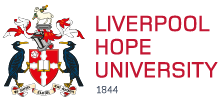This is an exciting time to study Economics: great ideological debates, policy decisions and technological changes are taking place that impact our lives, ranging from the direction of globalisation and international trade and trade restrictions.

This is an exciting time to study Economics: great ideological debates, policy decisions and technological changes are taking place that impact our lives, ranging from the direction of globalisation and international trade and trade restrictions, to trends in economic inequality, the environment and climate change, the gender pay-gap, migration flows, economic integration, financial crises, and the challenges posed by the recent Covid-19 crisis.
Our Economics programme will delve in to an in-depth study of real economic issues like the above, based on a solid foundation of an eclectic economic theory, and an understanding of how economic policy is formulated. This will enable students to gain the analytical and critical evaluation skills needed to recognise how national and global issues affect a society’s welfare.
The course is designed to provide students with the experience, knowledge and skills needed to succeed in the job market, by putting a strong emphasis on analytical, quantitative and research skills highly valued by employers.
It will also develop a student’s ability to apply the concepts, theories and quantitative methods to business and public policy decisions, in a diverse range of settings.
As we believe your ability to gain meaningful employment after you graduate is really important, there is also a strong focus on helping you to develop your more general and transferable employability skills.
In this course, students will study a range of areas, including Quantitative Methods, Econometrics, Intermediate Micro and Macroeconomics, History of Economic Thought, Banking & Finance, and International Economics and Finance.
Course Structure:
Each unit is divided between lectures, seminars and tutorials: in your first year of study there are approximately 6 teaching hours per week, which will decrease to approximately 5 teaching hours in your second and third years. On top of teaching hours, you are also expected to spend a number of hours studying independently.
Curriculum:
Liverpool Hope University pursues a path of excellence in scholarship and collegial life without reservation or hesitation. The University’s distinctive philosophy is to ‘educate in the round’ – mind, body and spirit – in the quest for Truth, Beauty and Goodness.
Liverpool Hope University is distinctive in that it is the only university foundation in Europe (and the USA) where Catholic and Anglican colleges have come together to form an integrated, ecumenical, Christian foundation.
It has happened in Liverpool and nowhere else in Europe largely because of the presence in the 1980s of two remarkable church leaders: Bishop David Sheppard, the Bishop of the Anglican Diocese, and Archbishop Derek Worlock, the Archbishop of the Catholic Archdiocese that extends from Liverpool across the north of England.
They confessed their faith to each other and took their congregations to visit each other’s cathedrals, a symbolic act of Christians working together in the context of northern Irish religious sectarianism.
When the three colleges (St Katharine’s 1844, Notre Dame College 1856 and Christ’s College 1964) came together the name ‘Hope’ was adopted came from Hope Street that links both cathedrals - a real example of what can happen when people unite and work together for the common good.
In 2019 we celebrated 175 years since the founding of our first college in 1844; in that year there were only six universities in England (two of them medieval) but all of them did not admit women, Catholics or Jews. The founding colleges of Liverpool Hope University were among the first few institutions to begin opening up higher education to the vast majority of England’s population.
The Anglican Bishops of Liverpool, going back to the founding Bishop, Bishop Ryle, were all evangelicals. The friendship of the Anglican Bishop and the Catholic Archbishop was largely based on both their sharing of a mutual faith and their commitment to the poor. This adherence to historic Christian faith remains the university’s own commitment as it seeks to live out that faith in its life and work in a secularised British academy.
At the beginning of each academic term we hold a Foundation Service to restate our foundational mission and values. Our Graduation ceremonies are held in alternating years in both the Anglican and Catholic Cathedrals in Liverpool.
The new name of Liverpool Hope University was chosen to represent the ecumenical mission of the Institution. Liverpool Hope University was born in July 2005, when the Privy Council bestowed the right to use the University title. Research Degree Awarding Powers were granted by the Privy Council in 2009.
Governance
The governing body of Liverpool Hope University is its University Council. As the University is a company limited by guarantee and a registered charity, members of University Council are also the company directors and charity trustees. The Council discharges its duties in accordance with the Higher Education Code of Governance.
University Council is responsible for maintaining the educational character of the institution and the promotion of its Mission and Values. University Council is chaired by the Pro Chancellor, Revd Canon Peter Winn.
© 2025 coursetakers.com All Rights Reserved. Terms and Conditions of use | Privacy Policy